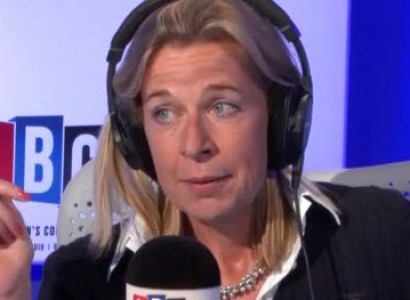
At 9:37pm on May 18, 2016, Katie Hopkins tweeted ‘Give me strength. Stick up a chuffing sign for English Language School’. Her bombastic tone accompanied an image which suggested that road signs in Bradford now included Urdu. Twitter users soon exposed the hoax. @jake_conran @KTHopkins @Juliet777777 Er, same van in the background. 100% photoshopped. — Adam Leyton (@AdamLeyton) May 18, 2016 @jake_conran @KTHopkins same van. Pull your head out of your arse pic.twitter.com/H53qut3OV2 — Graeme Rayner (@grimois) May 18, 2016 The origins of the hoax stem from a white nationalist hate site called The New Observer. Its content rallies against perceived ‘white genocide’. Editors of the site insist on labelling migrants and refugees as“illegal invaders” and “Third World colonizers.” Nor does the content lose its traditional antisemitism. Articles are rich with Holocaust denial. And obsess over the ideas of an all powerful ‘Jewish lobby’. An article on September 6, 2015 was headlined ‘Jewish Supremacists Using “Holocaust Fable” to Promote Third World Invasion of Europe’. The election of Sadiq Khan as London Mayor was ‘the first such formerly European city to officially fall before the nonwhite invasion of Europe.’ But to return to the Bradford story, the hoax goes beyond photoshopped [...]
The post Why did Katie Hopkins share a white nationalist hoax? appeared first on Religious Reader.
Continue Reading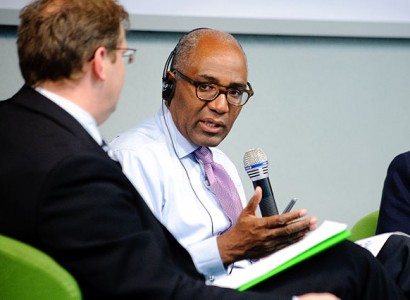
After much fanfare, What British Muslims Really Think, aired on Channel 4 last night, hosted by Trevor Phillips. It promised “an extensive and rigorous survey to get a better understanding of British Muslims’ attitudes to living in Britain and British institutions”; but did it deliver on its promise? One major problem was the arguments put
The post How Trevor Phillips misrepresented ICM’s poll on British Muslims appeared first on TELL MAMA.
Continue Reading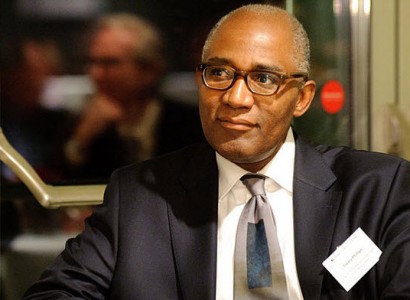
Channel 4 commissioned ICM to poll Muslims in Britain on a range of issues from women’s rights to marriage equality. But did the poll titled “What do British Muslims really think?” answer its own question? Polling British Muslims is a difficult and expensive task. It’s why YouGov avoided the Sun’s now infamous ‘1 in 5
The post Why the latest poll won’t tell us what all British Muslims actually think appeared first on TELL MAMA.
Continue Reading
Channel 4 commissioned ICM to poll Muslims in Britain on a range of issues from women’s rights to marriage equality. But did the poll titled “What do British Muslims really think?” answer its own question? Polling British Muslims is a difficult and expensive task. It’s why YouGov avoided the Sun’s now infamous ‘1 in 5 Muslims’ poll. ICM’s researchers picked 138 random Local Super Output Areas where Muslims make up at least 20 per cent of the population. This skewed the findings to areas with relative social deprivation. It also over-represented certain ethnic groups. Yet it still captured 51 per cent of the total Muslim population. Of the 1,081 Muslims polled, 55 per cent were Pakistani. British Asians/Asians totaled 83 per cent of the polling data. Data from the last census revealed that British Asian/Asians totaled 67.6 per cent of Muslims in England and Wales. The poll included just 11 Arabs and 16 white Muslims who account for 6.6 per cent and 7.8 per cent of Muslims in England and Wales. Despite methodological issues it remains a serious poll. As with previous surveys – Muslims identify with Britain at a higher rate than the national average. They also expressed greater [...]
The post What do Muslims in Britain actually think? appeared first on Religious Reader.
Continue Reading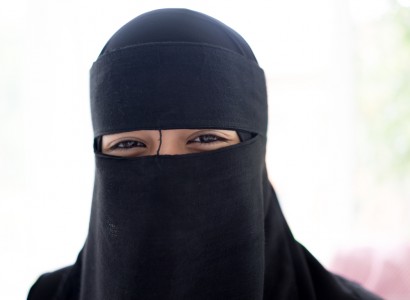
A Daily Express article which suggested that burqa sales are on the rise in Blackburn contains some basic errors. The headline “Burka sales BOOM” can serve to reinforce the imagery of religiosity and violence. Imagery that has featured in counter-jihad circles since 2006. The Other Islamic Bomb => pic.twitter.com/RlcqQwal2i — Scott M (@EVdeals1) April 27, 2013 Describing a ‘sales boom’ is a journalistic cliche and not instrincially offensive. In this context, however, it lacks sensitivity. The central claim of the article weakens under scrutiny. Paul Baldwin, the Express journalist, only interviewed a single store owner. And Baldwin acknowledges that ‘exact figures are hard to establish because many burkas are sold door-to-door’. Nadeem Siddiqui has seen a rise in sales. His Hijab Centre in Blackburn went from selling ‘one or two burkas a month’ to ‘one or two in a week’. It’s a rise but it hardly meets the inflated claims of the headline. The Express also carried out a ‘snap survey’ in the town and ‘found around 30 per cent of muslim women completely covered their faces’. That figure sounds daunting when the journalist had just informed readers that Muslims make up 11 per cent of the local population. It [...]
The post Are sales of the burqa and niqab on the rise? appeared first on Religious Reader.
Continue Reading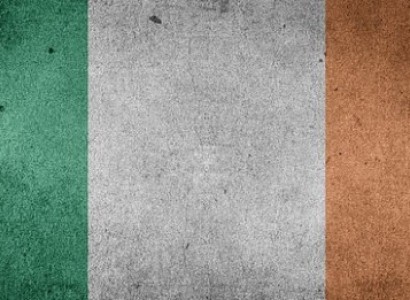
Ruba Rosalina Bukhatwa, known to her teammates as Rose, may become the first Muslim women in Ireland to play competitive rugby in the hijab. Tallaght Women’s RFC made a request to the Irish Rugby Football Union (IRFU) after Bukhatwa had recently joined the club. Within four weeks, the IRFU confirmed that she could play in the hijab under certain conditions: she must ensure that the hijab is secure and tucked into her jersey and wear a scrum cap. Martina Fitzpatrick, Women’s Development Officer at Tallaght Women’s RFC praised the IRFU’s speedy resolution. She hopes the decision will encourage more women in Ireland to pursue rugby. The 18-year-old law student at Griffith University was born in Dublin to Libyan parents. The town of Tallaght, in south Dublin, made headlines in 2014 with the “Hijabs and Hat-tricks” project after FIFA dropped its ban on hijabs. And Diverse City FC was soon born. Alongisde Sport Against Racism Ireland (SARI), the project helped Muslim women into football. The women’s team debuted at tournament that same year.
The post IRFU allows Muslim woman to wear hijab in competitive rugby appeared first on Religious Reader.
Continue Reading
Britain First deploys ‘self-victimisation‘ to reinforce group identity and support online. This strategy extends to a recent outrage with the Electoral Commission. On March 9, an article headlined ‘Electoral Commission: “Keeping London British! Is Offensive Slogan’ made bombastic claims of censorship. But it sounds familiar. The party made similar claims against Royal Mail in 2014.
The post How Britain First uses ‘victim narratives’ to boost support appeared first on TELL MAMA.
Continue Reading
Britain First deploys ‘self-victimisation‘ to reinforce group identity and support online. This strategy extends to a recent outrage with the Electoral Commission. On March 9, an article headlined ‘Electoral Commission: “Keeping London British! Is Offensive Slogan’ made bombastic claims of censorship. But it sounds familiar. The party made similar claims against Royal Mail in 2014.
The post How Britain First uses ‘victim narratives’ to boost support appeared first on TELL MAMA.
Continue Reading
Britain First deploys ‘self-victimisation‘ to reinforce group identity and support online. This strategy extends to a recent outrage with the Electoral Commission. On March 9, an article headlined ‘Electoral Commission: “Keeping London British! Is Offensive Slogan’ made bombastic claims of censorship. But it sounds familiar. The party made similar claims against Royal Mail in 2014.
The post How Britain First uses ‘victim narratives’ to boost support appeared first on TELL MAMA.
Continue Reading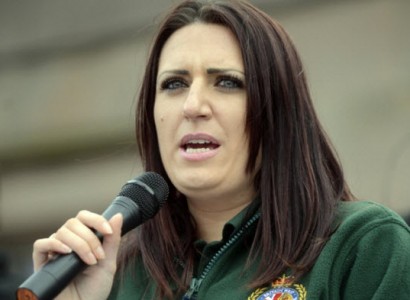
Britain First deploys ‘self-victimisation‘ to reinforce group identity and support online. This strategy extends to a recent outrage with the Electoral Commission. On March 9, an article headlined ‘Electoral Commission: “Keeping London British! Is Offensive Slogan’ made bombastic claims of censorship. But it sounds familiar. The party made similar claims against Royal Mail in 2014.
The post How Britain First uses ‘victim narratives’ to boost support appeared first on TELL MAMA.
Continue Reading